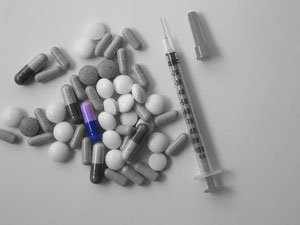A recent study explores a potential correlation between the risk of alcohol dependence and major depressive disorder from a genetic standpoint.
Extensive research has found associations between alcohol use and depression. Research has shown patterns of correlations between alcohol dependence and major depressive disorder in which the presence of one increases the risk of the other. As such, a bi-directional causal hypothesis has been developed suggesting that either alcohol dependence leads to major depressive disorder, or that major depressive disorder leads to alcohol dependence or both. A recent study published in the JAMA Psychiatry assesses the genetic relationship between major depressive disorder and risk of alcohol dependence.
For the study, researchers collected alcohol dependence data from four genome-wide association study data sets. The four studies included: The Study of Addiction, Genetics, and Environment (SAGE), the National Health and Resilience in Veterans study (NHRVS), the Yale-Penn substance dependence study, and the Collaborative Study on the Genetics of Alcoholism (COGA). Major depressive disorder was measured using a polygenic risk score where a weighted total was calculated based on reference alleles across single nucleotide polymorphisms. A polygenic risk score serves as the best prediction for the trait and takes into consideration multiple genetic factors. The polygenic risk score was determined by two constant thresholds within each data set. Associations between alcohol dependence and polygenic risk scores were statistically analyzed.
The SAGE study included 631 cases and 756 controls, the COGA study consisted of 788 cases and 522 controls, Yale-Penn added 2,135 cases and 350 controls, and NHRVS contained 317 cases and 1,719 controls. Across all four data sets, a higher major depressive disorder polygenic risk score was correlated with a greater risk of alcohol dependence. The results remained consistent before and after adjustments for major depressive disorder status. A shared genetic source was identified between the two conditions of alcohol dependence and major depressive disorder suggesting that a greater polygenic risk score for depression may be related to a greater risk of alcohol dependence.
Alcohol dependence and major depressive disorder have previously been found to be linked in multiple ways. While environmental susceptibility had been identified, this study puts forth a potential genetic correlation as well. This genetic association may allow the pharmaceutical industry to develop treatments that can target both conditions simultaneously. Using genetic testing, individuals who carry a predisposition to both conditions may be able to take early precautions to avoid being diagnosed with either disorder. Further studies need to be conducted that are specific to the genetic composition leading alcohol dependence and major depressive disorder to solidify these findings.
Written by Shrishti Ahuja, HBSc
Study used: Polygenic Scores for Major Depressive Disorder and Risk of Alcohol Dependence



